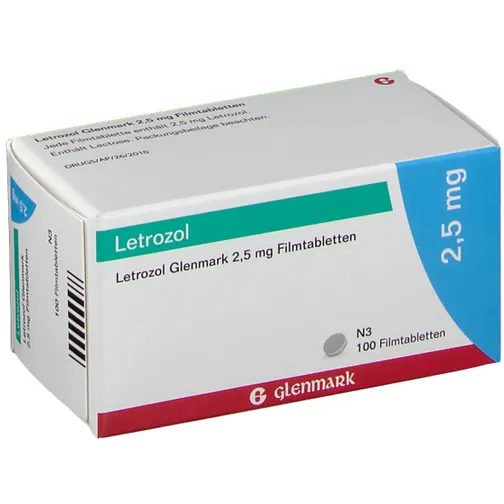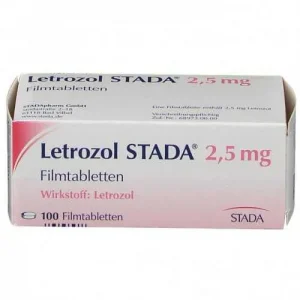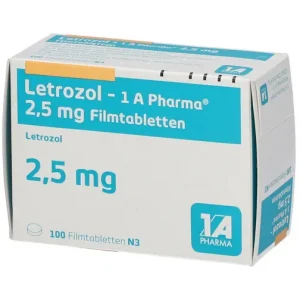Description
Daily administration of letrozole at a daily dose of 0.1-5 mg leads to a reduction in plasma concentrations of oestradiol, oestrone and oestrone sulphate by 75-95% of baseline levels. Maximum suppression of oestrogen synthesis is achieved on day 2-3 of treatment with the drug and is maintained throughout the treatment period.
In women with oestrogen-dependent malignant breast tumours arising during menopause, the drug, by reducing the concentration of circulating oestrogens and inhibiting their synthesis in tumour tissue, leads to tumour regression (in 23% of cases) and reduces the number of recurrences and mortality.
Adjuvant treatment with letrozole in early-stage breast cancer reduces the risk of progression, increases 5-year disease-free survival and reduces the risk of developing cancer in another breast.
Extended adjuvant therapy with letrozole reduces the risk of progression by 42%. Letrozole therapy reduces mortality in patients with lymph node involvement by 40%.
Possessing high specificity towards the aromatase enzyme, letrozole does not interfere with the synthesis of steroid hormones in the adrenal glands, so additional administration of glucocorticoids and mineralocorticoids is not required. Suppression of oestrogen biosynthesis does not lead to accumulation of androgens, which are precursors of oestrogens. Against the background of letrozole therapy, there were no changes in plasma concentrations of luteinising and folliculotropic hormones, as well as changes in thyroid function, changes in lipid profile, increased incidence of myocardial infarction and stroke.




Reviews
There are no reviews yet.